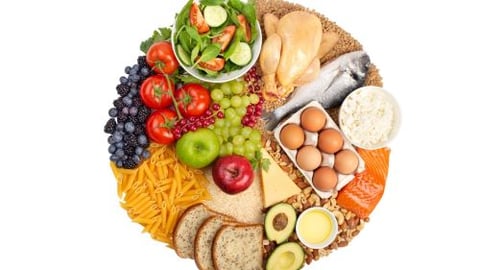How to Enjoy a Healthy Holiday Season
How can food retailers prepare for the unpredictable 2021 holiday season amidst the spread of the highly contagious Delta variant of COVID-19? Although many consumers are ready to push the “reset” button and get back to normal with traditional holiday celebrations, there’s no question that the global pandemic will continue to affect consumer behavior, even among those who are already vaccinated.
A cross-sectional study of the impact of COVID-19 confinement on eating habits and lifestyle changes found more than half of all participants reporting deterioration in lifestyle. Particularly, physical activity decreased, sleep hours increased and eating habits changed. One-third of participants reported increased appetite, with subsequent body weight gain. These findings provide some insight into how imposed protective measures, intended to flatten the curve of positive COVID cases and related hospitalizations, negatively affect individual psychology, personal lifestyle choices and eating habits.
The safest option may still be to limit in-person holiday gatherings to people who are already part of a household while celebrating with extended family in virtual ways. In response, supermarkets can anticipate consumer needs and offer practical ways to eat and drink better, move more, improve sleep quality, and bolster the immune system throughout the holidays.
Eat Better
Eating well during the holidays is challenging. On average, people gain about 2 pounds and experience increases in body fat, blood pressure and resting heart rate during the holiday season. Consumers are looking for unique ways to give the gift of health to loved ones with special dietary needs. Throughout the pandemic, shoppers frequently turned to meal kit home delivery and online grocery ordering with curbside pickup or delivery to make home meal preparation easier. Expanding on these trends, retail dietitians can offer healthy meal planning and shopping assistance gift packages for health-conscious individuals. Applying their extensive food and nutrition expertise, dietitians can personalize daily meal planning and develop holiday-specific entertainment menus and recipes that match customer-specific health attributes. Retailers can offer single-use and extended-duration bundled subscription packages spanning weeks, months or a year, and align recipe ideas and meal solutions with retail sales promotions to make healthier eating more affordable.
Rethink Drinks
Help shoppers rethink holiday beverage choices with simple swaps. Suggest limiting energy-dense beverage choices such as beer, wine, cocktails, Champagne, hot cocoa and apple cider while boosting intake of herbal tea, black coffee and calorie-free flavored water to hydrate without excess energy intake. Encourage consumers to limit caffeine-containing beverages to morning hours, because of caffeine’s five-hour half-life in the body. Because drinking alcohol can decrease sleep quality by nearly 40%, encourage shoppers to limit alcoholic beverages to just one or fewer drinks per day for women and two or fewer drinks per day for men.
Move More
Design fitness-focused gift baskets filled with items that support healthy snacking, hydration and activity habits. Retail dietitians can offer guided shopping tours focused on Fueling Up for Fitness and help participants make the most of popular wearable personal activity and sleep-tracking devices to easily and accurately gauge caloric intake, measure energy expenditure from physical activity and gain insights into their sleep habits.
Sleep Well
Speaking of sleep, improving sleep quality is important to overall health. According to the National Sleep Foundation, nearly half of all Americans feel sleepy during the day on three or more days a week. To combat holiday stress and fatigue, consumers should be encouraged to combine deep-breathing exercises, guided meditation and steps to reduce blue-light exposure from electronic devices within a consistent sleep routine. In addition, melatonin, an important neurohormone, has been shown to mediate circadian rhythms and the sleep cycle. Point consumers toward high-quality melatonin supplements that have been independently tested for purity and dose accuracy.
Bolster Immune Health
Eating a well-balanced, antioxidant-rich diet, coupled with good sleep quality and a consistent exercise routine, can help to bolster the immune system to stay healthy this holiday season. Help shoppers identify foods that supply vitamin C, zinc, vitamin D, healthy fats, sources of natural fiber, and probiotics needed for both gut and immune health.




